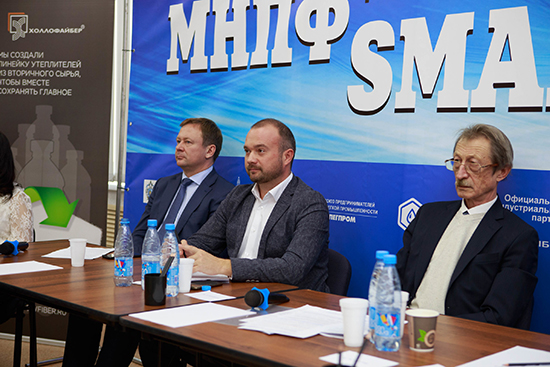Raw materials and personnel above all: SMARTEX Forum - about the future of the industry

On Wednesday, the XXIV SMARTEX International Scientific and Practical Forum concluded its work in Ivanovo, the participants of which outlined the need to adjust the scientific and educational priorities and tasks of the industry for the coming decades.
Raw materials and personnel for the Russian light industry are above all, this was the leitmotif of the entire forum. Representatives of leading scientific schools, industry unions and enterprises of the region stated that any ambitious plans for the development of the industry and the fashion industry without overcoming acute dependence on raw materials have a pronounced character of "projects of vain expectations". As noted by the CEO of the Italian-Russian company Stellini Russia
Anzor Boriev, today the prices of cotton raw materials have reached historical highs, and tomorrow the issue will be not the price of raw materials, but its availability.
By not being at the forefront of the modernization of the industry, the state, and with it science and business, risk pushing the industry to surrender market positions to China, Turkey, and now Uzbekistan. Engineering and technological solutions such as the use of plasma for tissue processing and giving them new properties or proven technologies for deep processing of short flax without the use of chlorine-containing compounds, proposed by scientists of the Institute of Solution Chemistry of the Russian Academy of Sciences, can open up new opportunities for enterprises. Executive Director of the Russian Union of Chemists
Vyacheslav Savinov believes that investing in the production of polyester, as well as aramid and polyamide fibers can correct the situation.
Alexey Konov, Deputy General Director of Texholding LLC, drew the attention of the audience that textile workers themselves had driven themselves "into a corner", working on the principle - more, cheaper, for the masses. He is sure that it is necessary to create value chains that produce high-margin products, and linen and hemp cotonine can become the flagship of the textile industry. But this is an extremely capital-intensive industry and only the state can do it. Tools for the most efficient use of available resources can be another way to reduce costs. To do this, as Anna Bogadelina, the general director of the Shuisky Calico plant, noted, you will have to "turn on your head." So, for example, thanks to polyrecycling, there is no waste of polyester raw materials at the plants of the company "Thermopol". In Ivanovo, the project to create a secondary raw material processing plant is being implemented by the Laut Recycling company.
In short, the country needs a powerful intellectual and investment breakthrough that will increase the resilience of enterprises to the realities of the market in the medium and long term. By the way, one of the serious investors in the industry is Sberbank PJSC. Alla Sbitneva, Executive Director of the Corporate Business Development Department of this credit institution, reported good news: Sberbank is developing a project for the production of viscose cellulose in Karelia, and a project for the production of cellulose from hemp is next in line. At the same time, Alla Bakidzhanovna stressed that the development of a single block is not viable. We need comprehensive infrastructure projects that create added value.
In the complex, it is necessary to approach the solution of the personnel problem. Starting with the close interaction of business with educational organizations and ending with raising the prestige of professions and the industry as a whole. As noted by the Rector of Ivanovo Polytechnic Evgeny Rumyantsev, Chairman of the Federal State Educational Institution of the Russian Academy of Sciences "Light Industry Technologies" Sergey Yukhin and Chairman of the Board of the Union of Textile and Light Industry Entrepreneurs of the Republic of Tatarstan Tatiana Fedorova, everything is important here: full harmonization of professional and educational standards, modern material and digital base, compliance of graduates' competencies with employers' requests, changing approaches: from student training to employee training through the tools of full immersion of a person in the profession. In addition, when choosing a future profession, young people should see the prospects for the development of the industry and opportunities for professional growth, and universities and colleges should train personnel based on the needs of enterprises. Therefore, it is finally necessary to think about changing the paradigm of mass public education itself. Without this, the Russian higher school is condemning itself to years of ineffective actions unrelated to the problems of the industry.

